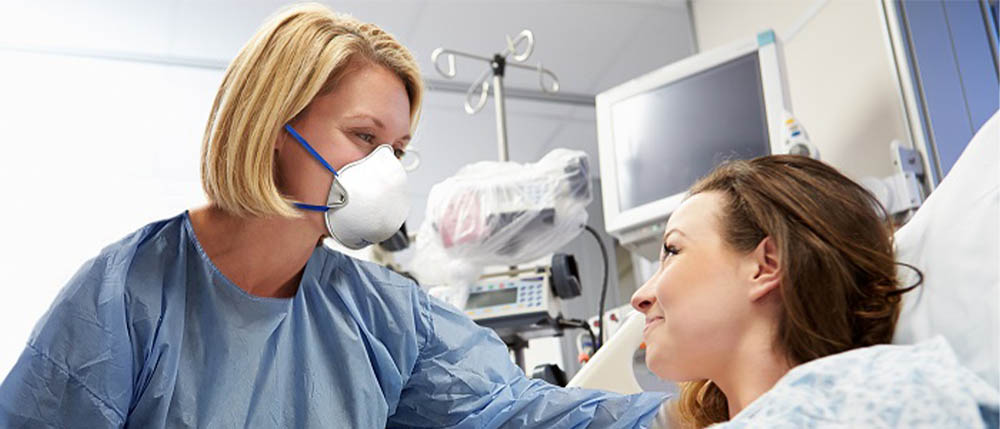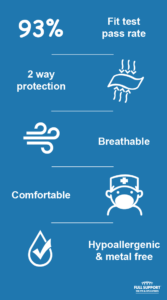COVID-19 Protection in Healthcare

It’s been just over a year since the first case of coronavirus landed on UK soil and with cases on the rise and the new variant found to be over 70% more contagious than the original, it’s now more important than ever to ensure hospital staff have highly effective PPE.
Hospital staff are three to four times more likely to contract the virus than the general population – a risk that is greatly increased for nurses, doctors and healthcare workers on the general wards, where only surgical masks are required.
Because of this, 1,500 medical professionals came together in an open letter to call for all hospital employees to be given high-quality FFP3 respirator masks such as the FSM18 Easimask which are usually only required in intensive care and select specialist procedures.
FFP3 respirators are a tight-fitting form of respirator that work by creating a tight seal around the wearer’s mouth and nose. This ensures hazardous particulates and viruses are stopped by the filtering material and not breathed into the lungs.
However, not all FFP3 respirators are created equal…
An adequate seal
By law, tight-fitting respirators, including FFP3s, have to be fit tested before they can be used to ensure the mask can create and adequate seal and fit the wearer’s face.
The most adequate method of fit testing – the quantitative method – compares in the ambient air inside the respirator with those immediately outside it while the wearer undertakes a series of exercises designed to put a strain on the respirator’s seal. If the particle count inside the mask goes above a certain threshold it indicates that the respirator being worn cannot create an adequate seal and is not fit for that individual.
Unlike other respirators, our FSM18 Easimask has shown to have a 93% fit test pass rate amongst healthcare workers using the quantitative fit testing method.
Not only does this mean less time spent fit testing, but it means more staff protected and less risk of contamination.
Continued supply
Anecdotally we have received dozens of reports of hospitals receiving different respirator brands each week to keep up with demand. While some pass fit tests better than others, the inconsistency of make/model either means staff are wearing masks that potentially are not protecting them, or the hospitals are wasting precious time and money re-fit testing their staff over and over again.
In response to the pandemic, Full Support have upped our production rates of the FSM18 Easimask to over 5 million respirators a month. Get in touch and find out more.
To valve or not to valve?
Valved respirators work by blocking air coming in, but allowing air to escape when breathing out. This is perfect for high-physicality environments such as construction sites – however it is not suitable for hospitals or protection against coronavirus.
As we all know, everyone is a potential carrier of COVID-19, whether displaying symptoms or not.
A valved respirator allows potentially infected breath from the wearer to be exhaled into the atmosphere. In healthcare environments, this is often at close proximity to vulnerable patients and/or colleagues.
Unvalved respirators on the other hand – such as the FSM18 Easimask – filter the air inhaled and exhaled. Offering respiratory protection to both the wearer and those around them.

Featuring a 360° seal, pre-moulded design, unvalved – two-way protection and p3 particulate protection, the FSM18 can be highly effective at preventing the spread of COVID-19 in hospital environments.
Available for immediate dispatch in small or large quantities, click here to find out more and request a quote today.

